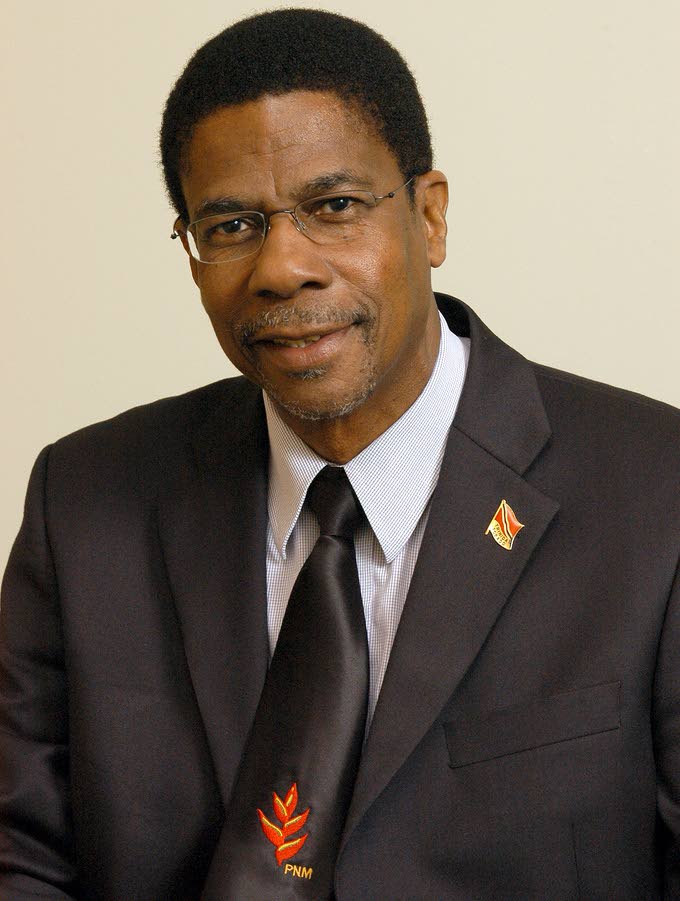Give people a voice on mega-projects

ARNOLD PIGGOTT
On visiting an island state a few years ago to deliver a keynote address at the invitation of a former prime minister, I was asked what was my experience in government on the issue of continuation, cessation and/or modification of projects either already commenced or approved for commencement. Specifically, whether in TT, there is any legislative framework which will ensure that projects commenced under one administration are not abruptly stopped or frustrated by an incoming government.
The question was posed in the context that a country’s development and progress can easily get stymied, to the disadvantage of its citizenry, with changes in administration, where divergent policy prescriptions may be incongruent with those of their predecessors.
As I listened to addresses by three of the nation’s significant leaders on January 24, they all spoke graciously about the long-awaited return of Parliament to the Red House.
The Parliament had been relocated since 2011 to the Waterfront Complex. There appeared to be consensus that the Parliament is a place wherein “national conduct and the national good” ought to be spawned in the national interest.
Interestingly, two current parliamentary political leaders acknowledged that the Red House restoration had spanned four successive administrations of three different parties in government. However, this PNM administration must be congratulated for taking the Red House restoration to the “finish line.”
If, as good citizens, we are to accept that which has been enunciated by President Paula-Mae Weekes, that “law and order, truth and justice, morality and decency” are values which should be associated with our Parliament, and further, that awesome power resides in the chambers of the Parliament, and that citizens are entitled to expect parliamentarians to give us our constitutional due, as well as the blueprint for national conduct, the following questions arise:
Is it not timely for revision to be made in the governance structure and the management of allocated resources in the national interest. as parliamentarians return to their parliamentary home, with some new approaches in this election year?
Shouldn’t policy direction, based upon sound national physical development plans for large-scale projects, be laid bare before our Parliament, having been previously approved by the Cabinet of any sitting government?
Shouldn’t citizens, having become privy and educated on such development projects, be put in a position to call upon successive governments to execute such projects, subject only to funding priorities, but not sacrificed by the introduction of arbitrary new “vanity” projects, which may satisfy and benefit narrow sectarian and special interests, as opposed to the interest of the larger national population?
The people of our beautiful rainbow, multi-ethnic, multicultural, multi-religious country wishes to see change in so many ways within the country, devoid of racial overtones, discrimination, tensions and fear. They seem to be crying out for listening ears.
Some citizens feel their hopes have been dashed, not having witnessed either the dawn of a developed society nor a new society at the beginning of this new decade.
One may recall that Vision 2020 was a development programme crafted by a PNM government over a decade ago, with contributions and expertise from multi-disciplinary professionals, technocrats, business executives and politicians.
It is hoped that when the next cabinet is constituted, following the general election this year, the political will can be summoned to outline, within a parliamentary agenda, proposals for the execution of some key “legacy” developmental projects, which will have the potential to take this “rainbow country” closer to developed-country status.
Notwithstanding the disappointment of some over the “shelved programmes” embodied in Vision 2020, Dr Rowley must be commended for his vision and political will to allocate resources to complete the transformational reconstruction of the illustrious President’s House, the Red House and the restoration of the heritage buildings comprising the Magnificent Seven.
These beautifully restored heritage buildings, when conjoined with the Government Campus buildings – housing five major ministries and a parkade completed in 2007– enhancing staff and customer comfort and service delivery, plus the three buildings comprising the International Waterfront Centre, within which is the 22-storey Hyatt Regency Hotel and Conference Centre, bear testimony to the benefits of political will and a vision that can lead the way for revitalisation and resurgence moving TT towards developed-country status.


Comments
"Give people a voice on mega-projects"